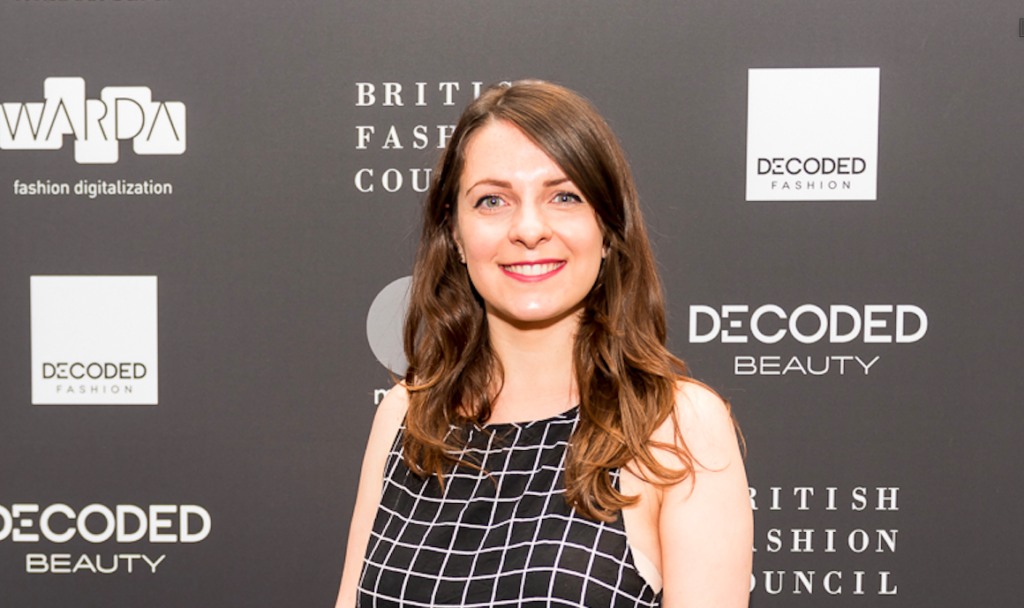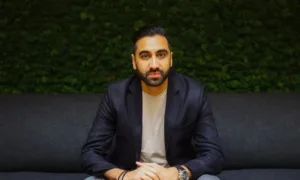One of the privileges and joys of journalism is meeting and interviewing truly inspirational people. The new digital age has meant this privilege has now opened up beyond professional journalists, with some of the most thought-provoking interviews now conducted by numerous industry thought leaders in addition to our most respected journalists.
In NDA’s Interviewing the Interviewers series, we caught up with some of the best interviewers in our industry, from journalists to independent content creators, turning the tables to find out what makes them tick.
Katie, Senior Reporter — Creative & Video at The Drum, is one of our industry’s most creative journalists. Currently reporting out of the publisher’s US operation, she writes on brand and business strategy and is responsible for The Drum’s prodigious original editorial video output.
She discusses her frustration with the distorted relationship between PR and journalism, particularly in Silicon Valley. And dancing to Kylie Minogue at Cannes.
What is your biggest hope and your biggest fear for the media industry in 2019?
My fear is we’ll see the death of more well-produced publications such as Shortlist and The Debrief because of failed monetization strategies. I’m currently reading Tina Brown’s Vanity Fair Diaries, in which she noted (in 1989) “there have been 2,500 new magazines in the 1980s”. That figure, and the sky-high salaries that followed it, is almost incomprehensible today.
My hope is a new team with a fresh idea will come into the industry with their eyes open and crack publishing revenue in the digital age.
What was your biggest personal industry highlight of 2018?
Leaving the village that is London ad land to tackle the New York industry. It’s a different beast — sober lunches, blunt email exchanges and a lot of time spent queuing for elevators — but its scale means reporting is addictive and exciting.
A close second would be dancing to Kyle Minogue at the News UK party in Cannes.
Who was the most inspirational person you interviewed in 2018 and why?
‘Inspirational’ is a word I’d rather save for peacekeepers and war correspondents, although Greenpeace’s executive director, John Sauven, comes very close to falling into that category. Reddit founder (and Mr Serena Williams) Alexis Ohanian was probably one of the sharpest entrepreneurs I’ve met, and CDP legend Tony Brignull was a wonderfully erudite interviewee.
The coolest person I interviewed in 2018 was Game of Thrones’ Maisie Williams.
What one technology are you most excited about this year and why?
I still organise my life with a Moleskine diary and only swapped paperbacks for a Kindle three months ago. I think that says all you need to know about my enthusiasm for technology.
What was your favourite ad or media experience of 2018?
The meticulousness of the BBC’s World Cup tapestry blew me away.
What is the buzzword or phrase you’d like to ban forever?
I don’t mind industry jargon and acronyms, but I cannot abide by made-up words thrown around in press releases and op-eds purely to make the subject sound intelligent. ‘Siloed’ is my biggest bugbear; ‘credentialize’ was the most offensive term I came across in 2018. Read Orwell’s six rules for writing and say what you mean using language everyone can understand.
Who’s the one industry figure you’d most like to interview you yet haven’t?
Sir Martin Sorrell once stood me up for an interview at Mobile World Congress, so I’m determined to get facetime with him before he’s “carted off to the glue factory”, as he puts it himself.
I’d also love to interview Ronan Shields about ad servers.
How could someone persuade you to interview them and what would put you off completely?
I’ll interview you if you have news that will interest professionals outside the walls of your own office, or a point of view that can spark a debate.
I won’t interview you if you refuse to talk on the phone, if your PR rep butts into the conversation every minute or if you ask for copy approval. It happens more often than you’d think, and I’ve gone on several Twitter rants about the distorted relationship between PR and journalism, particularly in Silicon Valley.
Read more in our Interviewing the Interviewers series here.









